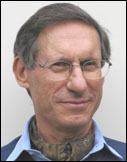Source: Remarks prepared for IAEA Safeguards Symposium
 The anticipated expansion of nuclear energy worldwide will raise considerable challenges not only for the nuclear industry, but for IAEA member states and the Secretariat, in particular in the areas of nuclear safety, safeguards, and security. In addressing the IAEA November 2010 Symposium on International Safeguards in Vienna, Pierre Goldschmidt discusses the major safeguards challenges of the 21st century associated with the verification of an increasing number of complex nuclear facilities as well as new disarmament commitments.
The anticipated expansion of nuclear energy worldwide will raise considerable challenges not only for the nuclear industry, but for IAEA member states and the Secretariat, in particular in the areas of nuclear safety, safeguards, and security. In addressing the IAEA November 2010 Symposium on International Safeguards in Vienna, Pierre Goldschmidt discusses the major safeguards challenges of the 21st century associated with the verification of an increasing number of complex nuclear facilities as well as new disarmament commitments.
Against this backdrop, the IAEA faces an incipient crisis in staffing. Much needs to be done to ensure that the IAEA is able to attract and retain top quality professionals required to carry out its multiple missions, particularly in highly technical specialties that are also in demand in the private sector.
In order to better attract and retain the needed specialists, it is necessary to reconsider both the IAEA’s so-called “rotation policy” of offering only three-year initial contracts (which may be extended to five or seven years, and only in limited cases for longer periods) and the Agency’s salary structure.
Pierre Goldschmidt recommends that the IAEA be allowed to offer any new staff the choice between the present contract system and the possibility to sign a contract similar to those offered in the private sector. In a nutshell, this would consist, after a one-year probation period, of offering a long-term contract (of undefined duration) with the understanding that the Agency would have the right to terminate the contract at any time as long as it provides a well-defined prior notice period and compensations at a level commensurate with the duration the staff has worked for the Agency. This would have the double advantage of allowing the Agency to retain those specialists who are performing well and the possibility of dismissing those who are underperforming.
The biggest problem in improving the IAEA safeguards system, Goldschmidt argues, will be overcoming the almost universal resistance to change, which requires full support of both the Director General and IAEA Member States.





